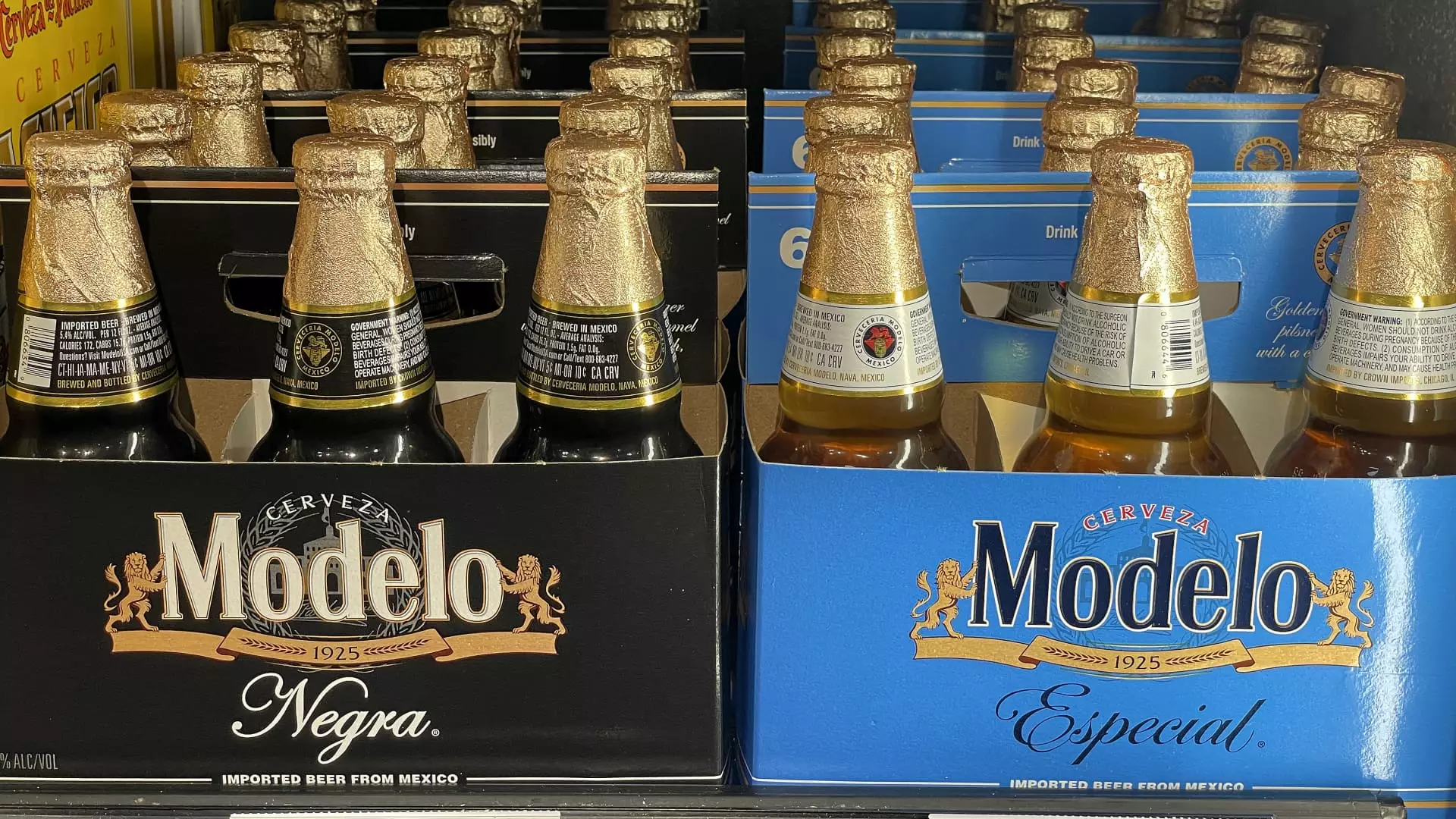In recent months, economic indicators and consumer behavior have become increasingly unpredictable, largely influenced by the volatile political climate. The latest financial reports from Constellation Brands reveal a modest 2% decline in beer sales, a drop that might seem marginal at first glance but signifies deeper currents beneath the surface. Consumer confidence, especially among key demographic groups, has been shaken by heightened fears over immigration policies that threaten job security and economic stability. When a significant portion of the workforce, particularly in industries employing Hispanic Americans, perceives an uncertain future, their spending habits fundamentally change. This contraction in consumer spending is not isolated but part of a broader pattern affecting multiple sectors, including beverage giants like Coca-Cola and Colgate-Palmolive. These companies have all observed a slowdown linked directly or indirectly to the apprehensions of Hispanic consumers—an indication that economic sentiment is becoming a political weapon, weaponized not on the battlefield but within the retail aisles.
Political Climate and the Hispanic Community: A Ripple Effect
At the heart of this situation is the intersection of immigration enforcement and economic participation. Constellation’s CEO, Bill Newlands, subtly alludes to this when describing the decline in Hispanic spending. Despite attempts to avoid direct attribution, it is impossible to ignore the reality: aggressive immigration policies, such as high-profile ICE raids, have created a climate of fear and mistrust within the Latino community. This, in turn, curtails discretionary spending—including the purchase of culturally significant products like beer brands that resonate strongly with Hispanic consumers. The ripple effects extend beyond individual purchasing decisions. Confidence in the broader economic system weakens when essential communities feel targeted and marginalized, transforming transient political anxieties into tangible economic contractions.
The Challenges of Navigating an Uncertain Economic Landscape
Constellation’s resilience testifies to a cautious optimism—an insistence on maintaining full-year targets despite mounting headwinds. Yet, beneath this optimism lies a complex dilemma: in a time when political actions are influencing consumer sentiment, companies must balance operational realities with the unpredictable shifts in demand. Higher tariff costs, like those on aluminum, further complicate matters, adding inflationary pressures that squeeze profit margins. The company’s reluctance to directly attribute sales declines solely to Hispanic consumers indicates an awareness of the political sensitivities involved, but the underlying message remains unmistakable: policy decisions are reverberating through the economic fabric, affecting formidable sectors like food and beverage.
Political Decisions as Market Disruptors: A Wake-Up Call
This situation underscores a vital truth for policymakers and business leaders alike: political policies do not exist in vacuums. When immigration enforcement intensifies, it reshapes the economic landscape in profoundly disruptive ways. The decline in demand from Hispanic consumers signals a broader issue—one where legitimate concerns over job security and community safety develop into economic fears that influence actual purchasing behavior. The current climate presents a stern test for the resilience of American corporations, which must adapt not just to market forces but also to the increasingly politicized environment shaping consumer trust and economic participation. In this context, the question becomes whether economic growth can ever be decoupled from the political narratives that dominate public discourse. The answer, increasingly, seems to be that they are intertwined—and the fallout is palpable across diverse industries, revealing the profound cost of political polarization on our shared economic future.

